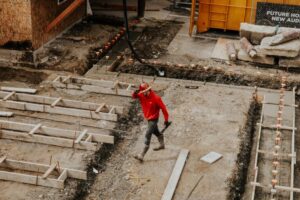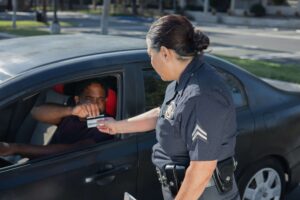Parole violation: In reality, parole is a type of community supervision for criminal defendants who have already completed a portion of their terms. Parole is sometimes mistaken for a simple early release from jail. When a parolee is given a discretionary release, they can finish their sentence “on the outside,” but under close supervision. A parole board or other correctional officials may set strict requirements for parolees, and parole officers make sure they are followed. The purpose of these requirements is to safeguard the public and prevent the parolee from returning to criminal activity. An instant return to prison is possible if these terms are broken.
Parole and probation are frequently used interchangeably by the public. Because both ideas entail a convicted criminal being under the community’s supervision, they are often misconstrued by persons who are unfamiliar with the criminal justice system. However, whereas parole is a supervised early release from jail, probation can be thought of as community supervision that acts as an alternative to prison. Another distinction between the two is that while parole choices are made by correctional authorities after the prisoner has completed a portion of their sentence, probation is typically issued by a judge at the time of sentencing.
Depending on the gravity of the offense and other factors, the amount of time spent behind bars before being eligible for parole can vary.
In what ways is parole broken?
When parole officials make the decision to grant parole, they establish conditions of release that must be adhered to while in the community.
All the regular probationary requirements, as well as sometimes stricter ones, are frequently part of the parolees’ conditions of release. These prerequisites always contain the following:-
- Avoid engaging in any criminal activity;
- Communicate frequently with the chosen parole officer;
- Avoid substance misuse and consent to periodic drug testing;
- Immediately inform the parole officer of any address changes.
In addition, the terms of parole are frequently specific to the crime and the offender’s history. These may include therapy requirements, restrictions on contacting co-defendants or victims, and reparation obligations. Additional monitoring requirements are also present, such as the duty to promptly notify authorities of living or working arrangements changes. A parole violation can occur if the parolee fails to adhere to a condition of release. Increased surveillance or a return to prison are possible consequence of a parole violation.
Minor Infractions and Technical Infractions
A very small infraction can be enough to land someone back in jail, which is one of the major issues for parolees. Re-incarcerating you for a minor infraction might cost taxpayers money and reverse any progress you have made in rebuilding your life. One reason why it is crucial to have competent legal counsel, even for small breaches, is due to this minor infractions include:
- failing a urine test;
- remaining outside after curfew for a short while; and
- skipping a parole officer visit.
There are good intentions behind some parole violations. Since many people depend on public transit, missing the bus, getting stuck in traffic, or changing service routes may cause you to be late for an appointment or violate curfew. A tainted test, a false positive, or a prescription or food that yielded a positive result could be to blame for failing a drug or alcohol test. After you started to rebuild your life, little infractions shouldn’t result in your return to prison.
When a parole violation occurs, what happens?
After granting parole, the court or parole board may revoke it. In order to complete your term, you must go back to prison. The initial determination to send you for a preliminary hearing following a violation may be made by the parole officer.
You are entitled to legal counsel at a hearing to revoke your parole under the principles of due process. At the hearing before the parole board, your attorney may represent you. Your lawyer may contest the facts to cast doubt on the existence of a violation or offer an innocent or logical explanation for the violation. The sentence was decided upon after hearing the testimony and evidence. The parole panel may determine to:-
- Keep you on parole;
- Change the terms of your parole; or
- Revocate your parole and send you back to jail.
You might still be eligible to appeal a parole revocation decision made by the parole board. There may not be many reasons to appeal, so seek advice from your criminal defense lawyer.
How is a parole violation handled?
Each parolee must meet with a parole officer who checks on their compliance with the terms of their restricted release. These criteria are frequently addressed and signed by the parolee several days before the parolee actually leaves jail.
For specific types of infractions, parole officers in some jurisdictions must ask the judge for a warrant. A summons or a notice of hearing may be issued for some less serious offenses rather than an immediate arrest
The Fourteenth Amendment provides due process standards to the states for parole revocation processes. Parolees have the right to challenge the ruling at a hearing and may present witnesses.
Following the discovery of a violation, some jurisdictions will have a second parole revocation hearing to determine the sentence. This hearing would focus less on whether the violation occurred and more on whether revocation is the appropriate penalty.
Different states treat parole infractions differently under the constraints of the Fourteenth Amendment. Think about the Georgian parole violation hearing procedure as an example:
- A preliminary hearing must be held before a Parole Board hearing officer who is not intimately involved with the case;
- The preliminary hearing is announced in writing to the parolee, who is given enough time to prepare a defense;
- It is possible to introduce witnesses and documentary evidence and to cross-examine witnesses.
- While not compulsory, the parolee can give statements and respond to inquiries;
- Following the hearing, the hearing officer provides the Parole Board with a written report;
- The Board decides whether to accept or reject the hearing officer’s conclusions and whether a final hearing is necessary.
Consequences of a Parole Violation
The court, and parole board have the discretion to impose a variety of punishments when a parole breach is discovered. Penalties may consist of:
Partial Revocation: Parole is subject to partial revocation, which imposes a set amount of time in jail before parole is reinstated.
Full revocation: The parolee might spend the entirety of the remaining time on their original sentence behind bars.
Increased Term of Supervision: The parolee might be freed, but only after serving an extended period of parole. Normally, this cannot increase the parolee’s overall sentence beyond the court’s original verdict.
Tolling: Parole violations may inadvertently increase the length of a sentence since the time required to resolve a violation is sometimes not included when calculating the date that supervision ceases.
Change in terms: The parolees may be permitted to remain on parole with new or stricter terms imposed following the hearing.
Fines: In rare cases, a parole breach might result in a fine or an order to pay administrative fees.
Criminal charges: It goes without saying that if a parolee commits a new crime while on parole, they will probably be subject to both the penalties for violating their parole and the potential punishment for the new offense.
Related articles:
Can You Violate Probation and Not Go to Jail?



